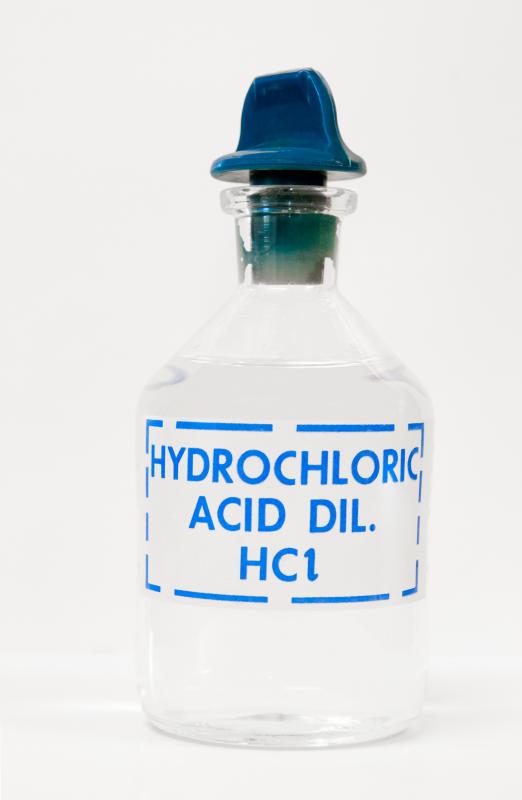At WiseGEEK, we're committed to delivering accurate, trustworthy information. Our expert-authored content is rigorously fact-checked and sourced from credible authorities. Discover how we uphold the highest standards in providing you with reliable knowledge.
What Is Fracking?
Hydraulic fracturing, or fracking, is an industrial process that can make oil or gas drilling more productive. Water and other chemicals are typically pumped down a type of well that turns horizontal deep under ground. Explosives and the force of the fluids often cause the rock near the well to crack and fracture. Natural gas or oil underground can flow into these cracks and into the well, and are then usually forced up it to be retrieved by pipes, trucks, and other equipment. Up to 1 million gallons (about 3.8 million liters) of water can be used in one operation, to reach depths of several thousand feet underground.
Along with water and chemicals, sand is often pumped into a well also. It typically helps to keep the fissures open once fracking is underway. Ceramic beads are sometimes used for this purpose as well; these, like the sand, break through the well casing and into the surrounding rock. Fractures can also be created by forcing gas such as nitrogen or propane into the well. Sometimes hydrochloric acid is used to dissolve rocks so that any gas or fluid underground can get into the well and flow to the surface.

Much of the fluid pumped underground returns to the surface and is often stored in waste tanks or open pits. Studies have indicated that some of it stays below ground, so regional regulatory agencies often track the use of fracking to determine if ground water can be polluted during natural gas extraction. The chemicals used are sometimes able to break up mud and cement before fluid is injected, while other substances thin out the fluid so it can more freely flow into the fractures.

When mining for methane gas, bacteria killing chemicals are often used so that organisms don’t contaminate the well. Bacteria can produce gases, such as hydrogen sulfide, that can interfere with the fracking operation. Other substances control the acidity of injection fluids, stabilize clay, and prevent corrosion in the well, tools, and tanks. Chemicals for enabling the fracturing fluid to hold more sand and bring it into the fractures, as well as for lessening friction and preventing particles from blocking the system are often used too.
Various types of equipment are used during fracking. Gas well drilling operations typically require many trucks; some sites use up to 200 tanker trucks for delivering water. The mixture of sand and chemicals is usually added to the well with a pumper truck, while the natural gas that flows out of the well is stored in large tanks on the site and then taken by truck to nearby pipelines.
AS FEATURED ON:
AS FEATURED ON:












Discuss this Article
Post your comments